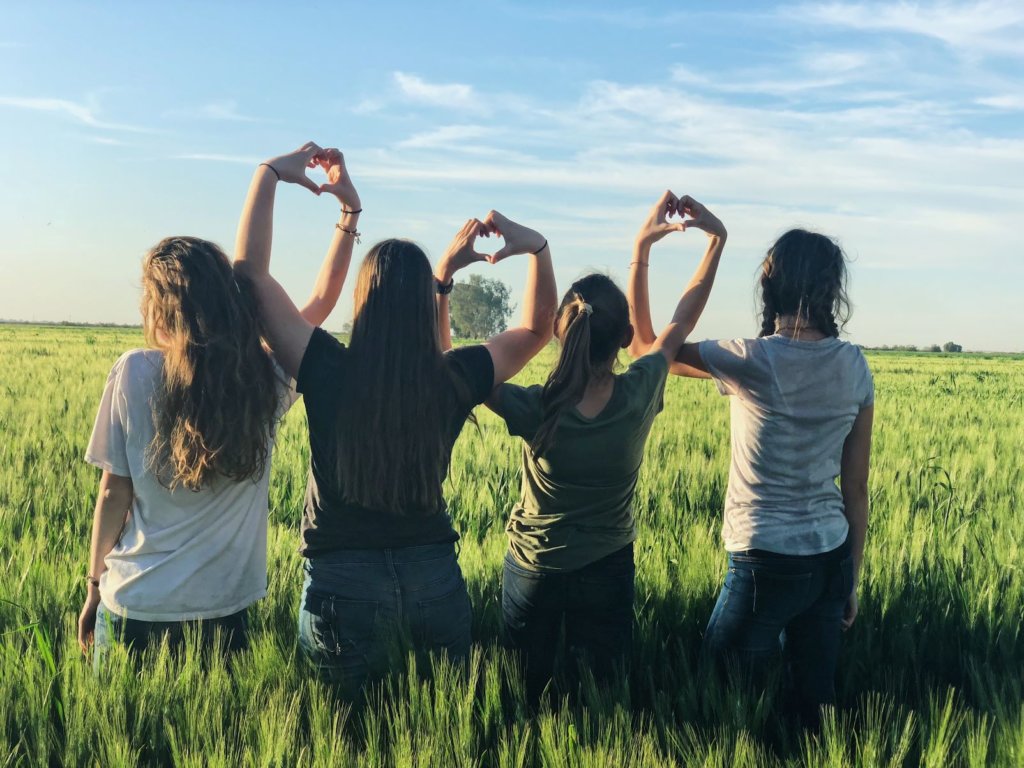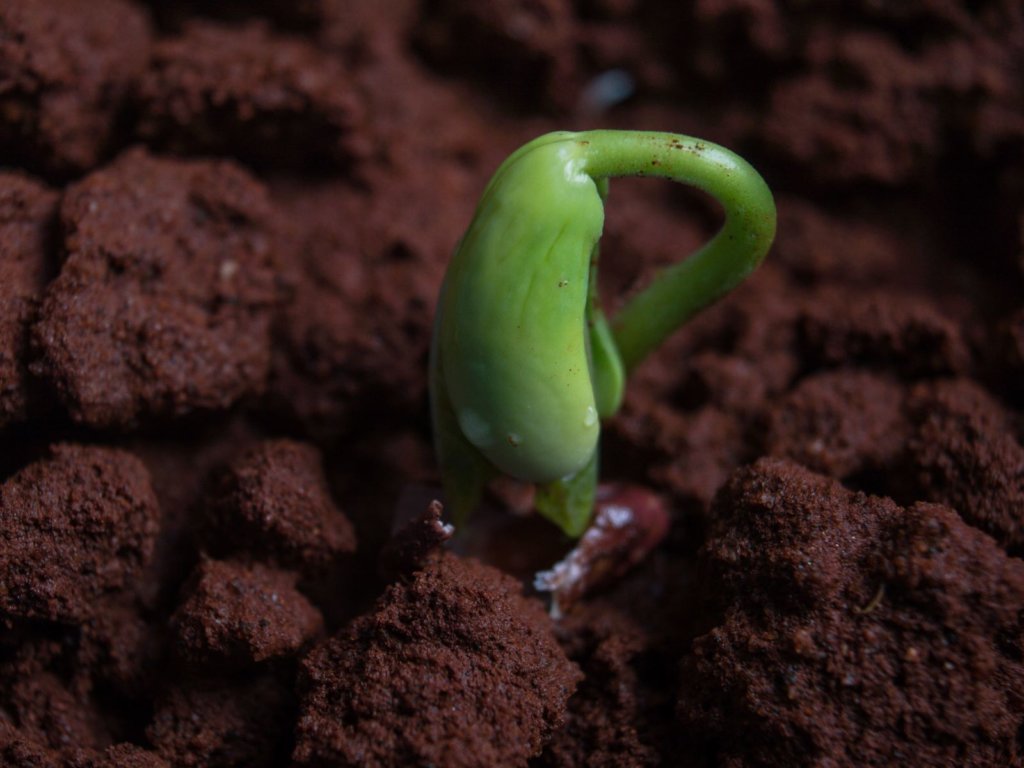As you’ve likely heard, the first-ever Amazon labor union was formed on Friday. What I love about this story is the David versus Goliath aspect. I can think of no better representation of a modern-day Goliath than Amazon. After all, Amazon accounts for more than 40% of ecommerce, according to emarketer.com. The next highest percentage of internet commerce is Walmart, coming in at 7.1%. So. There’s that.
And, regarding workers specifically, Jeff Bezos said in a New York Times article he didn’t want hourly workers to stick around for long because he viewed a large, disgruntled workforce as a threat. That attitude shows because the company spent $4.3 million in 2021 alone on anti-union consultants, according to U.S. Department of Labor filings. And maybe you’re saying, “Amazon doesn’t need a labor union because employees have great working conditions!” That’s what Amazon is touting, but the reality doesn’t match because Amazon measures the time each employee spends off task at its warehouses, meaning every bathroom break is accounted for. If a person spends too long in the bathroom, they can be and have been, fired.
I could keep going, but I already wrote about the poor working conditions in a blogpost last year. Instead, let’s talk about our David, Christian Smalls. First off, how perfect is that last name to represent David?!? Also, he’s someone Amazon discounted because, in a leaked memo obtained by Vice in 2020, an Amazon layer told Jeff Bezos that Smalls was “not smart, or articulate.”
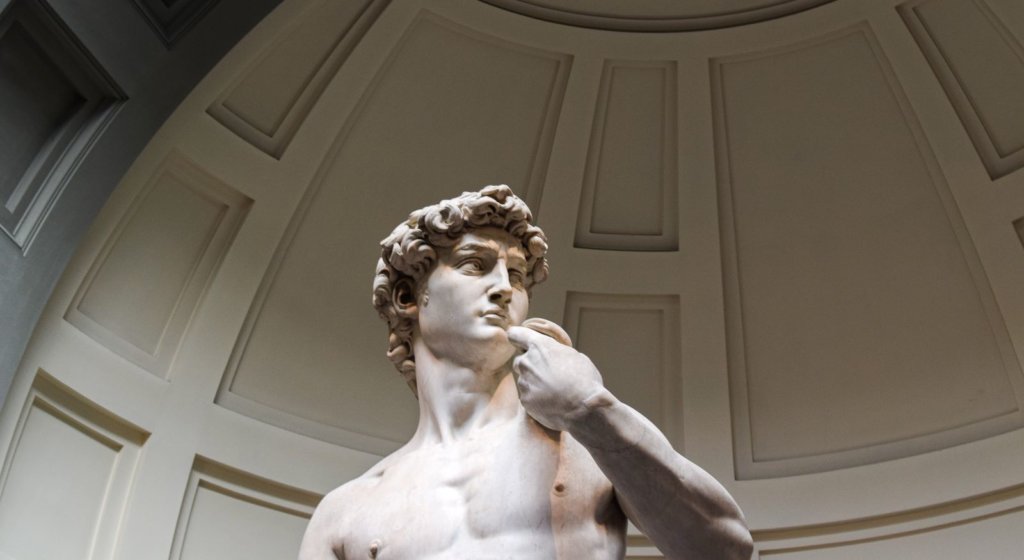
Keeping it classic here with the David sculpture. Photo by Mateus Campos Felipe on Unsplash
Take that, Amazon! The man you viewed as not smart or articulate spent the last two years talking to workers on Staten Island, holding cookouts, conversing with them at bus stops, and educating them on why a labor union is necessary. And it worked. Despite previous failed attempts, the Amazon factory known as JFK8 has a labor union. The vote wasn’t close either – the “yeses” outnumbered the “no’s,” by 500 votes. Yes, Amazon is fighting the outcome because of course they are, but still. In this day and age when we hear so many stories about corruption, plutocracy, and big corporations doing terrible things despite the opposition of the general public, it’s nice to hear a story about how the little guy can still win.
It reminds me of a quote from my spiritual teacher who spoke a lot about dharma, or the essential characteristics of human beings. There’s a lot to say on the subject, but in brief, my spiritual teacher praises the higher qualities of human beings; the ones that are aligned with truth, justice, generosity, and compassion. He said whenever human beings follow these higher qualities, their well-being, victory, and prosperity are ensured.
Furthermore, “whoever goes against these ingrained human characteristics … will be doomed to destruction. By divine decree, everyone has the right to live in the world with dignity. If anyone creates any obstacle against this dharma-oriented system, if they oppose it, they are bound to be destroyed. No one has ever been victorious or will ever be victorious by opposing dharma. Always remember that when dharma is with you, whoever will oppose you will be razed to the ground – their destruction is a must.”
A caveat here is sometimes that destruction is slow. It can take decades to appear and/or may happen in another life. However, I take heart knowing that in the long run, the righteous, the justice-oriented, the person who is fighting for a better world, like Christian Smalls, in this case, will win.
I dream of a world where we remember real-life David versus Goliath stories exist. A world where we understand sometimes the little guy does trounce the evil, big conglomerate. A world where we realize if we continue to do good in the world, to follow our higher nature, eventually we will succeed.
Another world is not only possible, it’s probable.
Like many people, Ukraine is on my mind. I’m watching in horror as Russia is brazenly invading another country in a quest for power. Republican Senator Mitt Romney told NBC in January that he believed Russian President Vladimir Putin wants to reestablish what he had before, a type of Soviet Union. And furthermore, Putin is clear he thinks the breakup of the Soviet Union was a catastrophe for Russia, once describing it as the “greatest geopolitical tragedy” of the 20th century. So, um, yeah, I’m pretty sure he’s not invading Ukraine on a “peacekeeping mission.”
Here in my own country of the United States, I’m feeling equally disheartened as I witness more and more evidence that we don’t live in a democracy, or rule by the people, but rather a plutocracy, the reign of the rich. The political system is only paying lip-service to the average person’s problems and is instead working diligently to protect and grow the wealth of the already wealthy. For instance, billionaires increased their net worth by more than $1 trillion during the coronavirus pandemic, according to Americans for Tax Fairness. Meanwhile, non-wealthy Americans have struggled to survive, closed their businesses, and generally haven’t profited due to the pandemic.
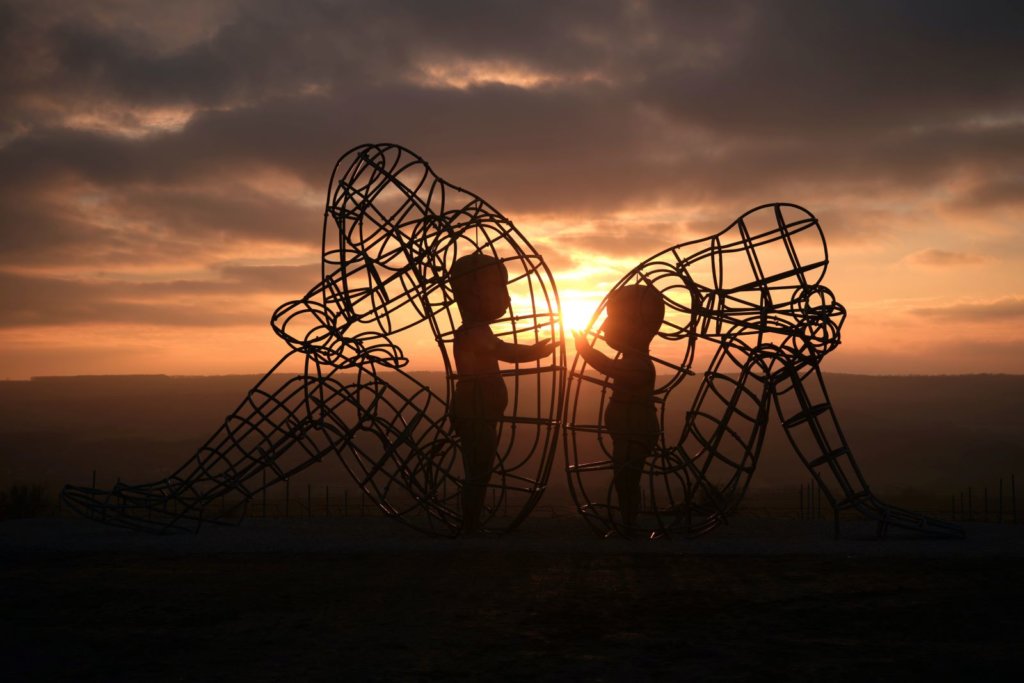
A very appropriate image by Ukrainian artist Alexander Milov titled “Love.” Photo by Adam Hornyak on Unsplash
Hearing all this is enough to make me want to lie down on the floor and moan like the Wicked Witch of the West, “Ooooh, what a world! What a world!” And unlike the Wicked Witch, I’d add, “What a cruel, cruel world!” With facts like these it’s easy to fall into despair, hopelessness, maybe some fear. After all, I’ve seen some memes circulating that we’re witnessing the start of World War III.
At times like these, I turn to my spiritual practice because it’s a source of strength and calm. My spiritual teacher said people suffer from all sorts of complexes, including a fear complex and a defeatist complex. When you’re afraid, you’re not thinking clearly. And when you feel defeated, you’re not empowered because you think some other person, system, or circumstance is more powerful than you. Sometimes it is, so that’s why banding together with others is important. What’s also important to remember though is a concept I wrote about last week: letting your life belong to love.
In this case, it’s about letting love move you, to act through you. When I think I’m the one that has to tackle a system that prioritizes profits over people, I get overwhelmed. When I think I have to “figure everything out,” or somehow “solve the world’s problems,” it makes me want to not even try. Who am I? My spiritual teacher would say I’m love incarnate. That the powerful, creative force that births stars and creates planets resides in me. I’m not a lonely, insignificant human being, but instead the progeny of the Divine, and that means something. It matters.
Regarding Ukraine, plutocracy, and any other issue pressing on my heart and mind, I can let love lead, guide me in my actions, and show me the way. I don’t have to do everything by myself because instead I recognize I’m a puzzle piece of the cosmos. My little actions combine with someone else’s little actions and that can topple oppressive political systems. I don’t know when, but I don’t have to, because instead I’m letting love lead the way.
I dream of a world where we allow ourselves to feel our feelings while also remembering who we really are. A world where we understand we are divine children working in tandem with the greatest force in the universe. A world where we realize we each have our parts to play and we’re not enacting them alone. A world where we let love lead the way.
Another world is not only possible, it’s probable.
As we celebrate Dr. Martin Luther King Jr.’s birthday here in the U.S., I keep thinking about one of my favorite quotes of his. There are many because the man was an eloquent speaker, but in 1963 he said, “Injustice anywhere is a threat to justice everywhere. We are caught in an inescapable network of mutuality, tied in a single garment of destiny. Whatever affects one directly, affects all indirectly. Never again can we afford to live with the narrow, provincial ‘outside agitator’ idea. Anyone who lives inside the United States can never be considered an outsider anywhere within its bounds.”
It’s an interesting concept, and one that continues to be relevant, this notion of “outsider” and how we apply justice to anyone we perceive to be an outsider. Did you know it’s been 20 years since the first detainees arrived at Guantánamo Bay? And that those prisoners were subjected to torture? Only 39 prisoners remain and more than a dozen of them have yet to face charges. They have been dubbed “forever prisoners” by some Democrats. The cost of operating the prison is about $13 million per prisoner every year, according to a Business Insider article! Are you freaking kidding me? I could think of a lot of better uses for $13 million per person.
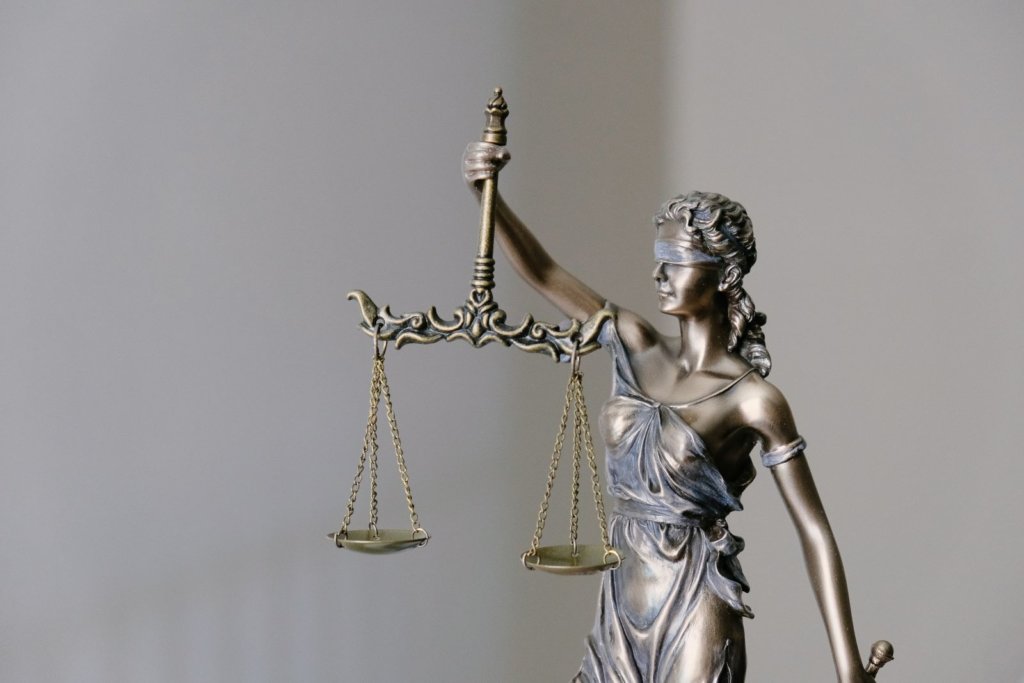
Justice is supposed to be blind, but is it? Photo by Tingey Injury Law Firm on Unsplash
And even if you’re saying, “Yeah but they’re terrorists! They need to be held captive!” The cost to house a single prisoner in California is more than $75,000, according to the LA Times, which is still more than a year at Harvard. Clearly there’s a lot of injustice, a lot of mismanaging funds, and yet a small group of people continue to let incidents like these occur.
It brings to mind an excellent article I read on LitHub by Rebecca Solnit posted in 2018 about how there’s a myth surrounding the “real” America. She wrote:
“[I]n the news and political life, we’re still struggling over whose story it is, who matters, and who our compassion and interest should be directed at.
“The common denominator of so many of the strange and troubling cultural narratives coming our way is a set of assumptions about who matters, whose story it is, who deserves the pity and the treats and the presumptions of innocence, the kid gloves and the red carpet, and ultimately the kingdom, the power, and the glory. You already know who. It’s White people in general and White men in particular, and especially White Protestant men, some of whom are apparently dismayed to find out that there is going to be, as your mom might have put it, sharing. The history of this country has been written as their story, and the news sometimes still tells it this way – one of the battles of our time is about who the story is about, who matters and who decides.”
Precisely. So much of justice and injustice is tied to who matters and who decides. If Black people don’t matter, then it’s fine to kill them in the streets. If terrorists don’t matter, it’s OK to torture them. But who exactly is deciding they don’t matter? And why is that those people are in charge? The reality is the White population in the U.S. is declining and other races are increasing. Where I live, the majority of people are not White. To my mind, that means decisions being made about policies and procedures should take into account that diversity, should recognize this country belongs to everyone who lives here. In essence, to bear in mind what Dr. King mentioned so long ago: that injustice anywhere is a threat to justice everywhere.
I dream of a world where we treat all human beings with love and respect. A world where we value justice not only in word but in action. A world where we celebrate and protect human diversity while also seeking to transcend divisions. A world where we honor Dr. King’s legacy by bringing his dream into reality.
Another world is not only possible, it’s probable.
If you’re anything like me, you’ve heard something to the effect of, “It only takes one person to feel grounded and safe in a crowd to change the atmosphere for everyone else.” It’s a nice sentiment, but is it just a bunch of hokey-pokey b.s.? Can little ole me really have that kind of effect on other people? It turns out, yes.
Emotions are contagious just like colds and scientists think this “emotional contagion” is due to the mirror neuron system. Essentially, when you do something yourself and watch someone else do that exact activity, the same neurons are firing, aka, mirror neurons. Pretty cool right? So how then do emotions catch on? According to this article in Healthline, it happens in three stages: mimicry, feedback, and experience.
Mimicry is just what it sounds like: mimicking someone else. If I smile at you, chances are you’re going to smile back at me. However, typically your reaction is not conscious. It’s happening automatically. But that mimicry has a ripple effect and creates feedback in the brain and body. For instance, if you’re mimicking my smile, even if originally you felt cranky, just by smiling, you’ll feel happier. And that feedback will create a response in you so that you actually are feeling happier. That’s the experiential part of emotional contagion. You mimicked me, created feedback for yourself, and thus “caught” the emotion I’m expressing.
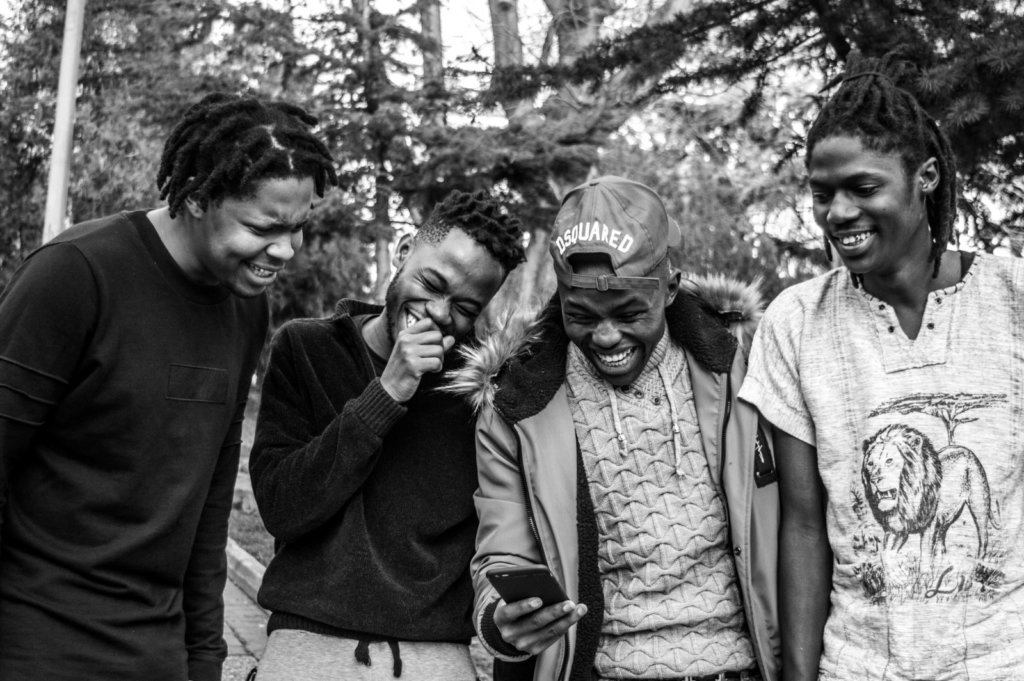
I don’t know about you, but looking at these folks makes me smile! Photo by Siviwe Kapteyn on Unsplash
What fascinates me about this process is not only the one-on-one contagion, but also the group contagion. We see this with mob mentality, or herd mentality when people are influenced by their peers to adopt a behavior or viewpoint on a largely emotional basis. What we’re all creating is a collective mind. We’re syncing our minds up and this happens whether we want it to or not.
The question then becomes, what to do about that? My spiritual teacher says, “The collectivity is yours. The collectivity is not outside you – your future is inseparably connected with the collective fortune. You must take the entire collectivity with you and move toward the sweetest radiance of the new crimson dawn, beyond the veil of the darkest night.”
Later on, he says, “Now, changes will have to be effected in the mental flow of this collective mind; you will have to create a new wave of thought in it. Because of the manner of human thinking thus far, the pace of human progress has been painfully slow. If it is given a new direction, the speed of progress will be greatly accelerated.”
Frankly, I’m all for moving toward the sweetest radiance of the new crimson dawn and accelerating the speed of human progress. And that means how I feel, how I act, matters. How you interact with other people has an impact. It transmits something and together we create something that wouldn’t have been there before. We are each contributing to a collective mind. But what are we contributing? Is it something that will move humanity forward to a state of equity, justice, love, and respect? Or is it something that creates more discrimination, inequality, and division? Knowing about emotional contagion, what will you choose?
I dream of a world where we recognize how we feel, what we express really does matter. A world where we allow ourselves to be authentic, but also understand we affect and even infect those around us. A world where we are conscious about what we’re contributing to the collective mind because we understand emotional contagion is real.
Another world is not only possible, it’s probable.
Something that’s been on my mind a lot, as I’m sure it has for many others, is the situation in Afghanistan. I’m watching in horror as the Taliban is taking over once more and all the progress from the past 20 years is disintegrating. How does this happen? Why hasn’t the narrative we’ve been sold – that the U.S. brings democracy and freedom to other countries – work? (I know we invaded Afghanistan in response to terrorism, but we also tried to establish a Western-style democracy.) It doesn’t work because there’s a very specific dynamic at play.
When a foreign country invades to supposedly make things better, they are often viewed as a bully throwing their weight around. They become resented and are seen as meddling in affairs they know nothing about. And if the foreign power does set up projects and organizations to aid the local denizens, those projects and organizations often crumble when the foreign power leaves. Why? Because the foreign country is enacting subordinated cooperation instead of coordinated cooperation.
Where people do something individually or collectively, but keep themselves under other people’s supervision, that’s subordinated cooperation. It’s the traditional power structure we see, well, pretty much everywhere. It’s the traditional work situation where a boss issues commands from on high and the employees follow those commands. The employees have less agency or power and aren’t as invested in their work because they don’t have a say.
In the case of Afghanistan, our military trained and equipped nearly 300,000 people to take over when we left. It was justification for our withdrawal. What happened when the U.S. withdrew? That army dwindled to only about 500 people.
U.S. News and World Report stated the local forces “simply put down their weapons, defected to the Taliban willingly or because their families faced threats, or succumbed to the other forms of bribery and waste that American inspectors general have been publicly documenting for at least a decade.”
In the same article, Army Gen. Mark Milley is quoted as saying, “They had the training, the size, the capability to defend their country. This comes down to an issue of will and leadership.” His quote is very revealing – he said the issue came down to “will” and “leadership.” He’s a military man looking for a military solution. The military is all about subordinated cooperation and not coordinated cooperation so of course as soon as the head honchos left the army fell apart.
Imposing ideas and dictates upon another group doesn’t work. What does work is coordinated cooperation. It’s when cooperation is between free human beings, each with equal rights, mutual respect for each other, and they are working for the welfare of the other.
To quote my spiritual teacher, “Only the cooperative system can ensure the healthy, integrated progress of humanity, and establish complete and everlasting unity among the human race. People should work to enjoy sweeter fruits by establishing the cooperative system.”
A cooperative system cannot exist if one group is considered inferior to another. Nor can coordinated cooperation exist if it’s imposed upon the group. They have to believe themselves equal, to demand it, and not take anything else than they deserve. Local culture and customs must be respected and the local people must be the ones to initiate change – not someone who is considered an outsider. The situation in Afghanistan is a clear example of that.
I dream of a world where we employ coordinated cooperation and not subordinated cooperation. A world where we respect local customs and cultures while also empowering the disempowered. A world where we support change not in the form of imposition but instead in the form of nurturing.
Another world is not only possible, it’s probable.
I watched an EFT (emotional freedom technique) video about digestion and the practitioner said people with digestive issues have trouble letting go. They have issues digesting and processing life. That’s me. I’m emotional, sensitive, and cling to the past. (I bet other people with water moons in their astrological charts know what I’m talking about.)
It’s especially hard for me to let go of relationships, all relationships. I remember people as they were and they sort of crystalize in my mind so if they’re different people in the present, I experience cognitive dissonance. I get confused as to why we’re not interacting the way we used to. I don’t understand why our relationship has a different rhythm, or even no rhythm at all. I’ll give the person chance after chance to return to who they were, to be like who I remembered, but they don’t. As much as we trot out the expression, “People don’t change,” that’s not true. People change all the time. It’s impossible to move through life unaffected and we all shed old versions of ourselves to become new people. Myself included. Except I also take with me worn out relics like tattered pieces of luggage.
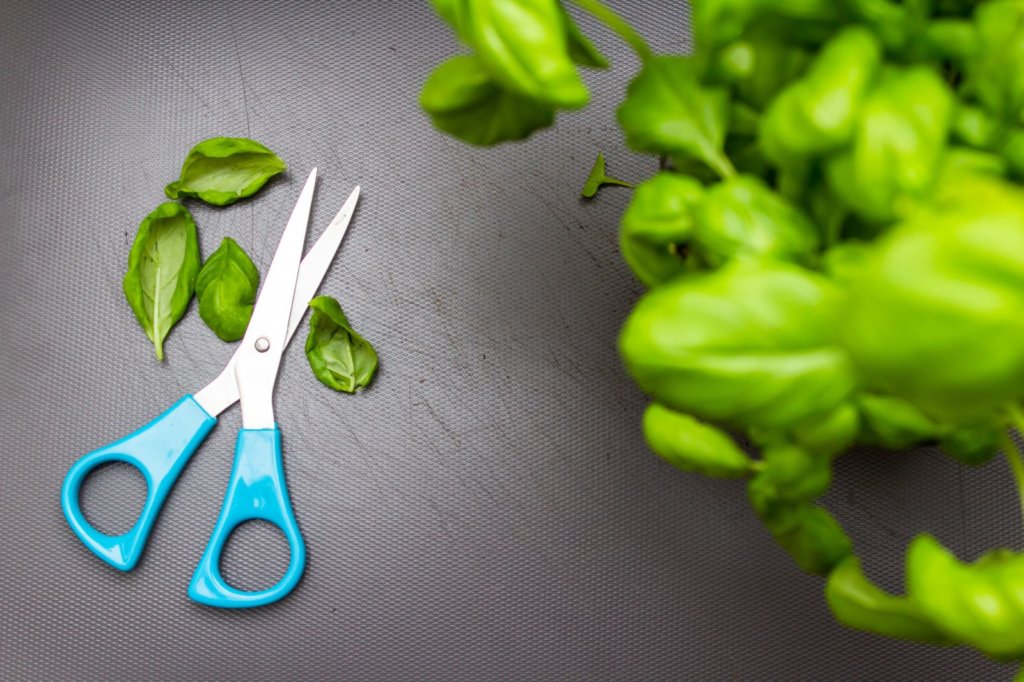
This picture makes sense if you focus on the headline and also keep reading. Photo by Louis Hansel on Unsplash
I think I do this because when I love, I love deeply and it’s hard for me to let that love go. It’s hard for me to recognize some of the people I love don’t exist anymore, that our relationship is well and truly dead for whatever reason. But just because the relationship is dead doesn’t mean it didn’t matter. On the contrary, it mattered a great deal as I write about in my yet-unpublished novel. The main character is talking about romantic love here but for me the sentiment applies to every sort of love. I’ve changed the wording a bit so it fits in with this blogpost:
“She expected falling in love to feel like a bomb – explosive, undeniable, irrevocably changing everything. Instead, falling in love was more like a leaky bathroom faucet, the slow and steady drip of water eventually wearing away the porcelain until it left an indelible mark. For better or for worse, the person now had a permanent space just for them.”
Sometimes that permanent space is like a scar, a reminder of what was, and other times that permanent space is like an internal organ, active and functioning. I often long for the scars to turn into organs but they very rarely do.
I opened this post talking about letting go and that’s what I’m doing here. I’m acknowledging most scars remain scars and longing for what was doesn’t serve anyone. Who I am in the present moment deserves to spend time with other people that I get along with as they are now, currently. It’s like pruning a plant – you have to prune some plants in order to make way for more robust growth. It turns out people are the same way.
I dream of a world where we’re able to let go of old relationships and the dreams we had for those relationships. A world where we understand everyone we love has a permanent space in our psyches but sometimes that space is a scar. A world where we recognize not only do plants need pruning, but people do too.
Another world is not only possible, it’s probable.
On Saturday at 2 a.m. my power went out because a car ran into a utility pole, which affected not only me, but approximately 900 other people. The power wasn’t restored until about 2 a.m. on Sunday morning and that meant all my plans for Saturday – doing laundry, roasting vegetables, heck, even blending a smoothie – were scuppered. What I had planned didn’t matter anymore because circumstances wouldn’t allow for it. I’m sharing this because not only was my Saturday unexpected, but my whole week. All week I ran into one mishap and miscommunication after another.
Life is like that sometimes. After all, that’s why we have the joke, “How do you make God laugh? Tell him your plans.” How often does life turn out how we intended? Not only the broad picture, but also the day to day? And how do you react when things don’t go your way? I’m doing my best to handle changes with grace and aplomb instead of throwing a fit like a small child (even though a part of me also wants to throw a fit). I feel my feelings, but I also give in to the moment.
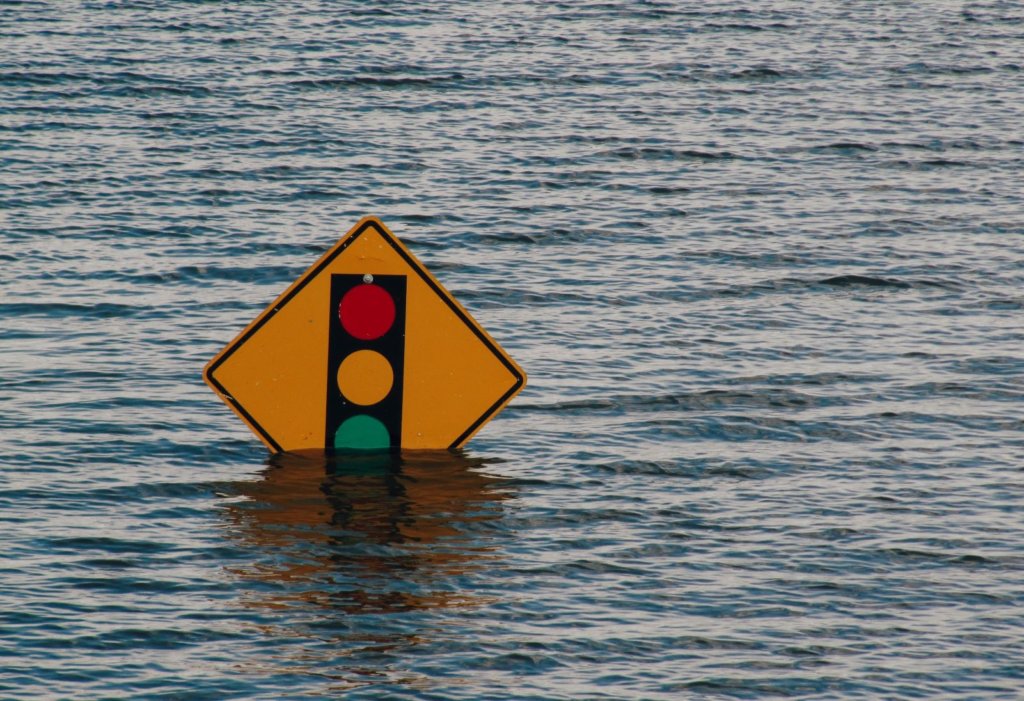
This picture will make sense as you keep reading. Photo by Kelly Sikkema on Unsplash
For instance, on Saturday, I could have worked around the lack of electricity by going to a friend’s house with laundry in tow and vegetables in hand. I could have kept my Saturday plans more or less but instead I surrendered to the day, meaning I didn’t fight the power outage. I gave into it by napping and using my gas stove to cook other things.
My experience this week relates to my last post on moving with trust because when life throws me a curveball, it doesn’t have to unnerve me and instead I can adapt. I can’t help but think the universe is training me, working out my adaptability muscle, because as I look around, adaptability seems to be the order of the day. A city in China received nearly a year’s worth of rain in just three days, displacing around one million people. Also this month, Germany experienced severe flooding, and in the U.S., the Bootleg fire in Oregon is creating its own weather.
Marcus Kauffman, a spokesman for the state forestry department, said in the NY Times, “The fire is so large and generating so much energy and extreme heat that it’s changing the weather. Normally the weather predicts what the fire will do. In this case, the fire is predicting what the weather will do.”
The weather is changing, our climate is changing, and we human beings must also change. We must adapt to reality and accept the degree of chaos and uncertainty that comes with being alive at this moment, otherwise we’re in trouble. Part of the adaptability is preparing for what could be coming. In my case, I have a solar power bank to charge my cellphone and other small devices so I didn’t worry about my cellphone dying, nor did I have to scramble for a public outlet. I also have a solar-powered light cube and candles so I didn’t brush my teeth in the dark.
Do you have things like that? Are you prepared for an earthquake, fire, flood, tornado, or blizzard? Depending on where you live, one or more of those things will happen. Natural disasters are no longer rare events and instead becoming commonplace. Record-breaking storms, fires, etc. are happening every year. Each year we’re beating a new record in a bad way. It’s scary and uncomfortable but it’s also reality. And we can either fight reality, curse our circumstances, or we can adapt and prepare. In doing so, we might find we are more flexible than we realized.
I dream of a world where we practice adaptability. A world where we expect the expected. A world where we prepare for what’s ahead because we know it’s coming sooner or later. A world where we understand the world is changing and so must we.
Another world is not only possible, it’s probable.
I realize Juneteenth has come and gone but I keep thinking about an article I read by Robin Washington where he said Juneteenth has been whitewashed. The tale we’ve been told is Union soldiers arrived in Galveston, Texas, on June 19, 1865 to inform enslaved African Americans they were free. As if they didn’t already know. However, historian Gregory P. Downs has firsthand accounts from people demonstrating they did know. Galveston’s Blacks knew they were free and so did their slaveholders, who nonetheless kept them in bondage using brute force.
That means General Gordon Granger didn’t read off from a scroll and let slaves know they were liberated. No, Granger and his soldiers let the slaveholders know the slaves were liberated – at the barrel of a gun. They used force to say, “Let these people go.”
One of the reasons this article has stuck with me is because it illustrates what motivates people to change. So often I think we as a society want to believe that if people only knew the truth, they would change out of the goodness of their hearts. If people only knew that by purchasing products made with palm oil, such as shampoo, cookies, peanut butter, microwave dinners, and more, they are contributing to the extinction of orangutans, they’d stop. (Side note: Palm oil has many names like “stearic acid” and “sodium lauryl sulphate” so it could be hiding in your products and you wouldn’t know.) And it’s true that sometimes informing people does move them enough to change their behavior.
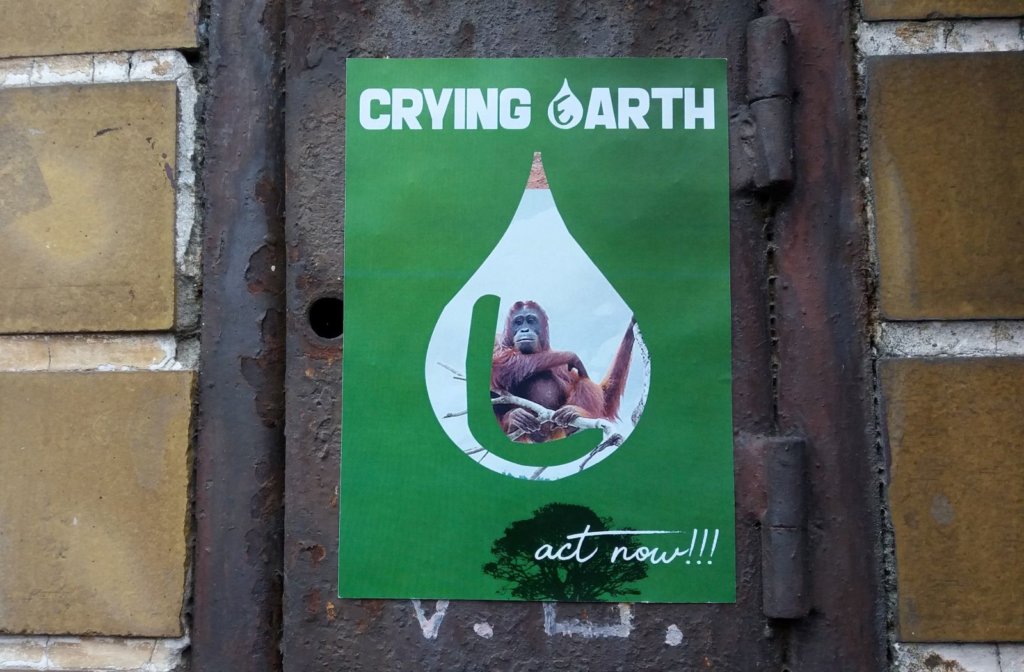
Will you help the orangutans? Photo by Marija Zaric on Unsplash
For instance, a friend of mine became vegan after watching a couple of documentaries. Up until that point, she didn’t put it together cows are raped and separated from their young in order to produce milk. She didn’t think about how cows, pigs, and chickens have personalities and consciousness like her dog does. She didn’t know the animals she ate screamed out in pain as they were slaughtered. But when she learned more, she changed her eating habits. However, not everyone is like my friend.
Some people know the truth and are still unwilling to change because it’s too hard, too complicated, too whatever. Some people, like the Civil War era Galveston slaveholders, will maintain the status quo until someone else forces them to change.
I think that’s why my spiritual teacher is not a pacifist. He says, “In all actions of life whether small or big, the unit mind progresses by winning over the opposing trends. Life develops through the medium of force.” Later on, he says, “In the absence of the ability to resist evil and also in the absence of an effort to acquire such ability, declaring oneself to be nonviolent with the purpose of not admitting all these weaknesses before the opponent may serve a political end, but it will not protect the sanctity of righteousness.”
My spiritual teacher cares about protecting the sanctity of righteousness, about making life better for everyone, and so do I. Does that happen sometimes through petitions, boycotts, and protests? Yes, absolutely. But sometimes that also happens at the barrel of a gun and I think it’s important for us to recognize that. I’m not encouraging everyone to go out and buy a gun, rather I’m saying force has its place in the world, if it’s used wisely and used for the benefit of all.
I dream of a world where we understand what motivates people to change. A world where we recognize sometimes learning the truth is not enough. A world where we realize force has its place in society and sometimes it’s necessary to employ force in order to create a world we wish to see.
Another world is not only possible, it’s probable.
All week when people have asked me how I am, I’ve responded, “I feel like I’m in the fertile soil, in the dark, waiting to sprout.” Small things are happening in my life and I’m doing my best to honor the power of change in increments, like I wrote about last week. But it’s tough to be here, in the waiting. It reminds me of a piece by Mark Nepo called “The Courage of the Seed.” He writes:
“All the buried seeds crack open in the dark,
the instant they surrender to a process they can’t see.
What a powerful lesson is the beginning of spring.
All around us, everything small and buried surrenders to a process that none of the buried parts can see.
And this innate surrender allows everything edible and fragrant to break ground into a life we call spring.
In nature, we are quietly given countless models of how to give ourselves over to what appears dark and hopeless, but which is ultimately an awakening beyond all imagining.
As a seed buried in the earth cannot imagine itself as an orchid or hyacinth, neither can a heart packed with hurt imagine itself loved or at peace. The courage of the seed is that once cracking, it cracks all the way.”
I wouldn’t say I’m a seed that’s cracked all the way. In fact, I’m not even sure I’ve started cracking, but I can say I identify with a seed buried in earth. I don’t know what the heck is happening in my life. I feel muddled, confused. I’m not sure what to do, how to act. I could spend the rest of this blogpost using synonyms for “opaque” and they’d all apply. However, one thing I do know is I’m surrendering to a process I cannot see.
I’m clear there is a process and I have a higher power that’s guiding me, providing for me, taking care of me. I know that just because things are fuzzy doesn’t mean they’re stagnant. My sponsor says something to me a lot because, well, it’s usually appropriate for my life. It’s something to the effect of, “God moves slow but He’s always on time. And when it’s time He moves fast so be ready.” That’s my life in a nutshell. Slow, slow, slow, BAM. Full speed ahead! Go, go, go! It’s easier for me to be in the “go, go, go” phase rather than the “slow, slow, slow” phase but they’re both a part of life. After all, just look at a seed. Or something even closer: a heartbeat.
A heart acts like a pump, suctioning blood and then pushing it out. There is a steady rhythm of movement then pause then movement then pause. My spiritual teacher says, “And this pulsation, that is movement through speed and pause, is an essential factor for each and every animate or inanimate object. Wherever there is existential factor there must be this pulsation. An entity acquires strength and stamina during the pause phase, and emanates vibration during the speed period. There cannot however, be any absolute speed or absolute pause in the created world.”
So this is me, in another pause phase. In another “seed buried in the soil” phase, just waiting to sprout. And I will, eventually.
I dream of a world where we remember the essential nature of life, the heartbeat thrumming through us all that reminds us to pause, then act, then pause. A world where we realize we can’t have all speed or all pause. A world where we take comfort in the fertile soil of our lives knowing at some point we’ll sprout.
Another world is not only possible, it’s probable.
